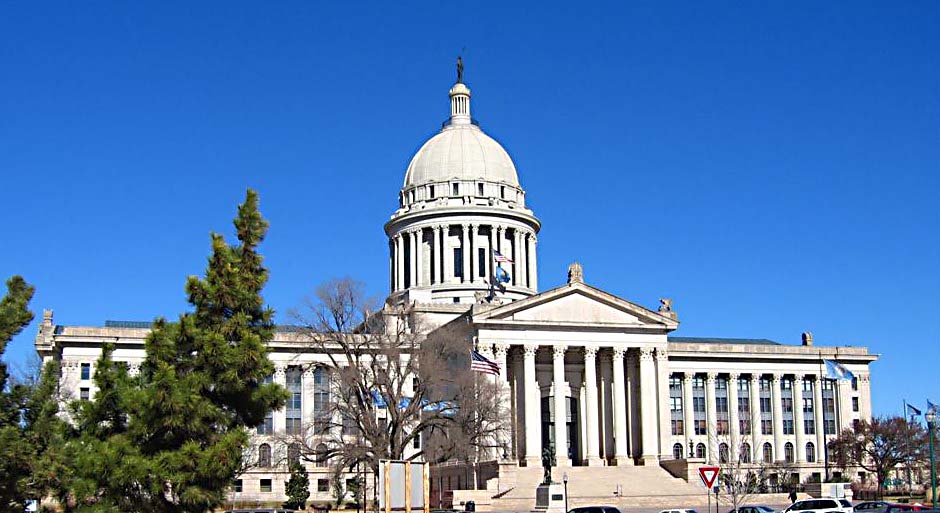 “Oklahoma State Capitol 2” by Xltel (Tom Holland) is licensed under CC BY-SA 3.0. https://commons.wikimedia.org/wiki/File:Oklahoma_State_Capitol_2.jpg
“Oklahoma State Capitol 2” by Xltel (Tom Holland) is licensed under CC BY-SA 3.0. https://commons.wikimedia.org/wiki/File:Oklahoma_State_Capitol_2.jpg
With many legislators and the Governor supporting significant income tax reform, and income tax elimination, now is the time for the Oklahoma House to act and advance tax cut legislation.
House Bill 3635 is a bill to eliminate Oklahoma’s personal income tax using a series of revenue triggers. First the bill would eliminate the graduated income tax, establishing a flat rate of 4.75% for 2023. To protect the lowest bracket from tax increases, the bill also increases the standard deduction. When revenue grows by 5%, the trigger will kick in and reduce income taxes by 0.5%. When it grows another 5%, the process repeats. Once this repeats ten times, the income tax will have been completely eliminated in Oklahoma. The bill passed through the House Appropriations Subcommittee and is ready for a floor vote, which it needs by the end of this week.
Last year, Oklahoma drew in a $282 million budget surplus. The state has the means to ensure Oklahomans keep the money they rightfully earned by flattening, lowering, and eventually eliminating the state’s personal income tax.
Oklahoma had a version of tax revenue trigger-oriented reform on the books in 2014, which was repealed by Republicans in 2017. When that was done, Earl Sears, the Republican state representative who wrote the bill repealing the original trigger said, when the economy ‘stabilizes’ “we will return to good tax policy.”
Numerous states are using revenue surpluses to eliminate their income taxes to grow economically and gain a competitive advantage. Many other states with income taxes are flattening and reducing them.
Some of these states are tying tax rate cuts over time to revenue benchmarks, which allow states to lock-in reforms but pause reductions if revenues do not come in at the anticipated level. This avoids any budget surprises.
Oklahoma is seeing increased competition from states across the country that are improving their tax climates. The pandemic sparked many Americans to move to low tax states, with Arizona, Florida, Texas, and others seeing huge population booms, while high-tax New York and California, saw massive decreases.
The momentum is there with plenty of legislative support, and Governor Stitt calling for significant tax relief in his State of the State address. The House must take the lead and pass legislation now, to make sure the opportunity for tax cuts is seized.

